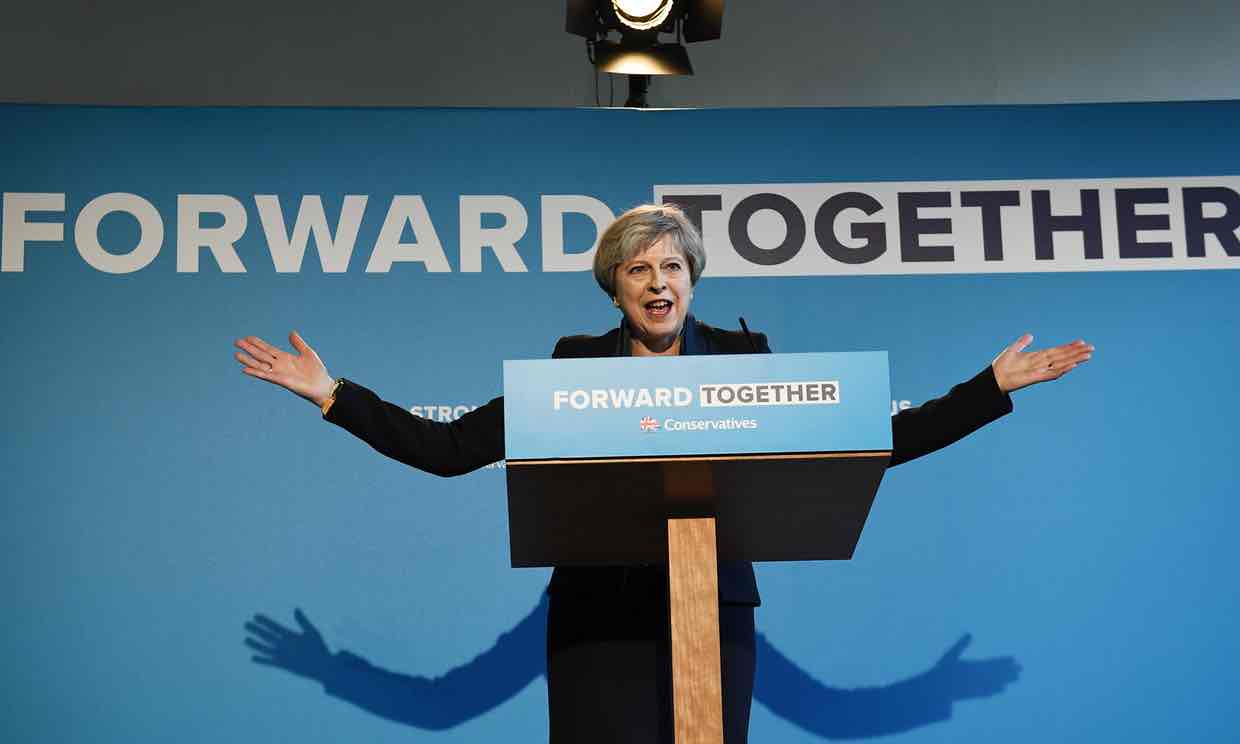The Conservative manifesto: our writers on how the party’s pledges stack up
written as part of a panel at The Guardian, 18 May 2017
Kate Maltby: If the Tories move to the left, what happens to party identity?
Jeremy Corbyn talks a good talk about repealing Thatcher’s legacy. But today Thatcherism was finally killed off, and not by the Labour party. The Oedipal blow wasn’t even struck by David Cameron and gang, long derided by the hard right of his party as “wets”. As if to prove that a second female leader need be no carbon copy of the first – a lesson still lost on some tabloid writers – today Theresa May set out a blueprint for Conservatism without Thatcherism.
The clue is on page 9. Setting out her principles, Theresa May’s ghostwriters tell us that “we do not believe in untrammelled free markets”. She has nonetheless overseen some paring down of the size of the state: a means test on the winter fuel allowance and the end of the triple lock on pensions signal that Britain is finally easing away from its status as a welfare state that disproportionately subsidises the wealthiest – eldest – age demographic.
The broader language of the manifesto, however, suggests that this is a state firmly committed to intervening in the economy. Team May’s insistence on including students in the immigration cap is unpopular both among economic libertarians and professionals in higher education, which relies on foreign students as a consumer base. Moves to penalise business that hire foreign workers smack of May’s recent declaration of war against cultural internationalism: “If you’re a citizen of everywhere, you’re a citizen of nowhere.”
Some of us backed Conservative leaders when they derided Miliband’s economics as dangerous leftism. But we should at least have the integrity to call the same policies dangerous leftism when a Tory prime minister embraces them.
The question that remains is this: when Labour gets its act together, what will distinguish the Conservative party? With May matching Labour in the economic centre left, all that would distinguish her from a competent centre-left opponent is an aversion to immigration and a fondness for nationalist rhetoric. In five years’ time, that may be a less appealing prospect.





